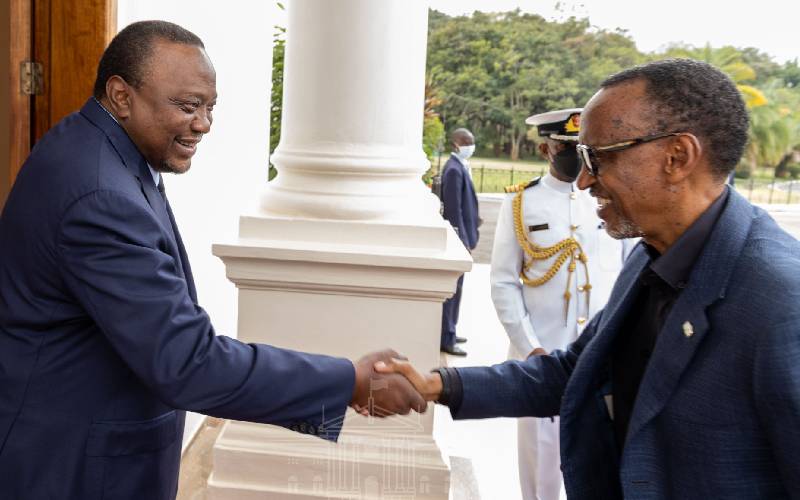×
The Standard e-Paper
Stay Informed, Even Offline

President Uhuru Kenyatta yesterday chaired the third Conclave Meeting of East Africa Community (EAC) Heads of State at State House Nairobi. Top on the agenda was the escalating conflict between Democratic Republic of Congo (DRC) and Rwanda armies along the border in eastern DRC.
The meeting comes against the backdrop of President Kenyatta's proposal for a regional military force to fight the M23 rebels in eastern DRC, a move welcomed by DRC but with a rider that Rwandan forces should not be part of it.